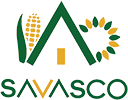Description du projet En
Project description
SAVASCO is an INTERREG V-A Spain - France - Andorra (POCTEFA 2014-2020) project, which aims to structure an innovative and eco-efficient construction sector based on corn and sunflower stalks. It is located in the trans-Pyrenean territory and should contribute to reducing the environmental impact of the construction sector.
The construction sector, through its various components and activities, is today one of the main sectors that emit CO2. Building materials have their share of responsibility in the impact of the sector.
Insulating materials, for example, are mainly made from non-renewable raw materials of mineral or petroleum origin, the extraction and processing of which generate significant environmental impacts, especially in terms of emissions and consumption of greenhouse effect gases.
But the physical characteristics of certain agricultural wastes, such as corn and sunflower stalks, give them a very convenient and desired performance in terms of thermal insulation and water regulation for the formulation of building materials. In addition, these biologically based raw materials have many environmental benefits: they are renewable, local, and constitute carbon sinks.
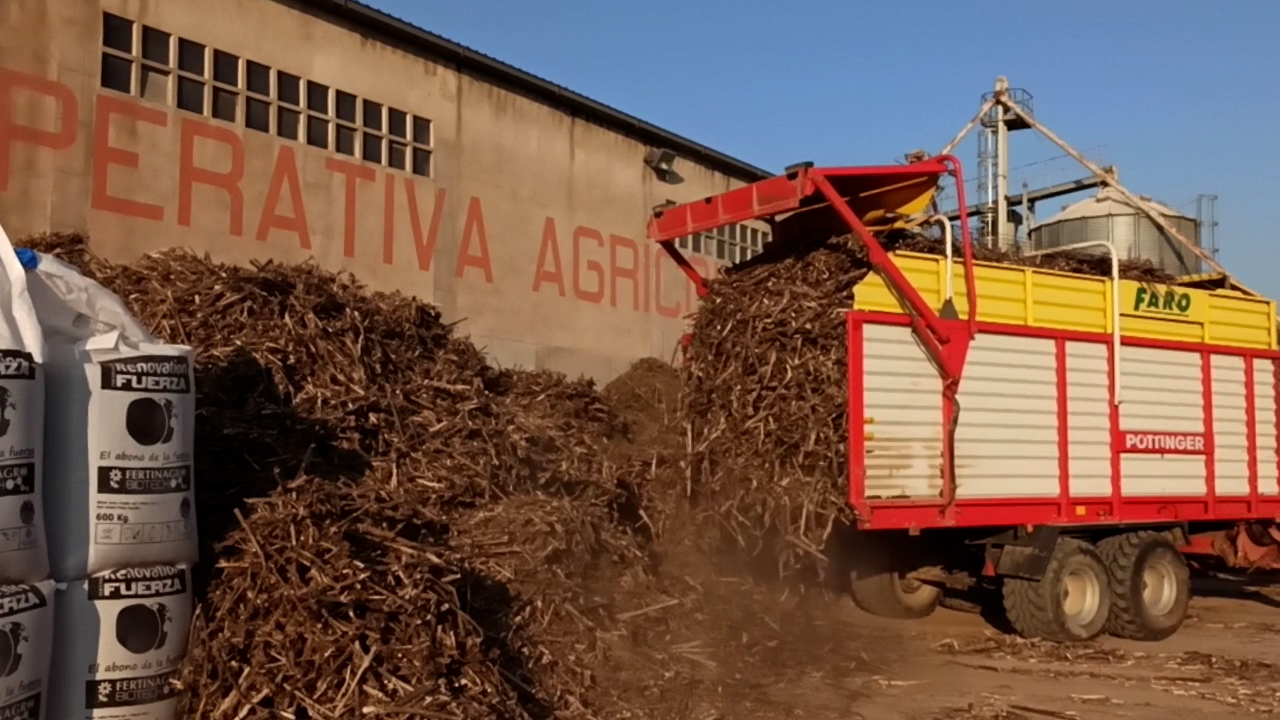
Challenges
Research on the formulation of bio-based materials is one of the work areas to help reduce the environmental impact of the construction sector. Thus, the SAVASCO project studies the case of agricultural co-products, corn stalks and sunflowers, and is seeking to formulate new solutions with a reduced environmental impact, and with social and economic benefits. Another challenge is to structure the sector, in particular by linking its various actors, in order to guarantee its sustainability at the end of the SAVASCO project.
Goals
To enable the development of this innovative and sustainable economic sector, SAVASCO is structured around four main objectives:
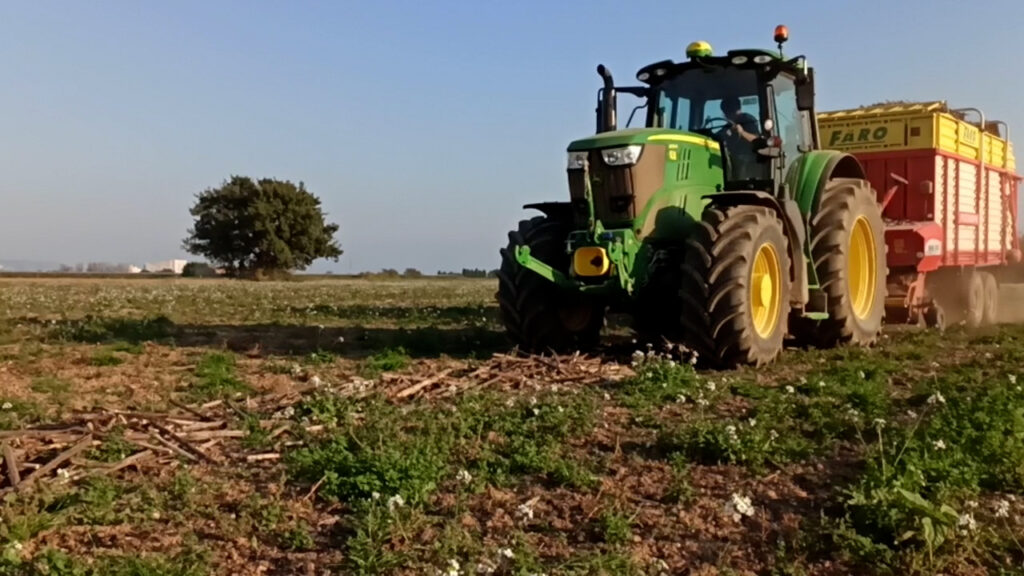
To develop
To develop methods for collecting and processing sunflower and corn stalks at a moderate cost for the production of vegetable aggregates with controlled physicochemical characteristics.
To formulate
To formulate and characterize building materials from vegetable aggregates of corn stalks and sunflowers.
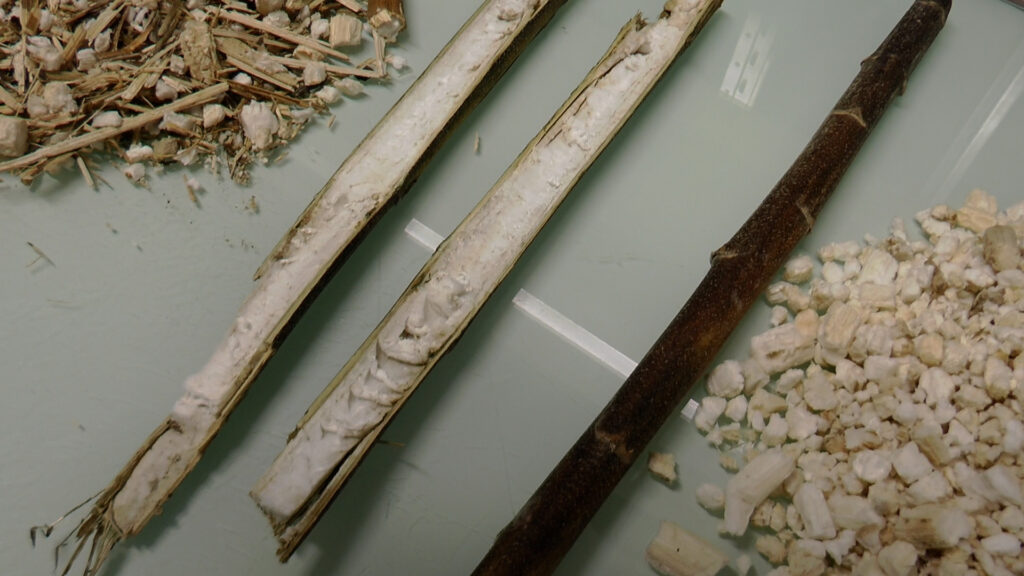
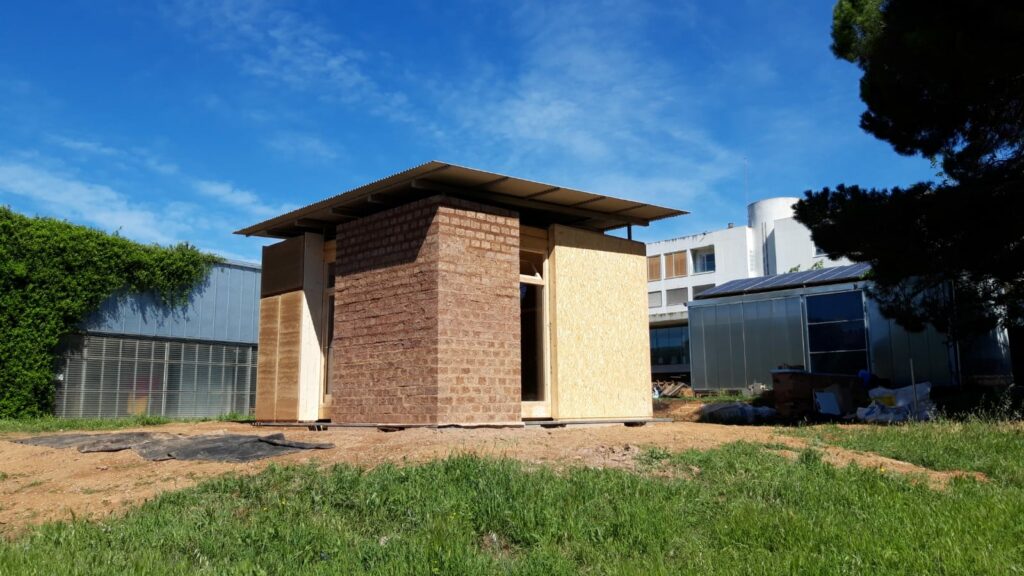
To prototype
To design and build two instrumented model cells using the building materials developed. The two prototypes, located in France and Spain in different climatic zones, will allow to control their thermohygric behavior and energy efficiency.
To analyze
To evaluate, based on Life Cycle Assessment, the environmental, economic and social performance of the developed construction products and of the sector.
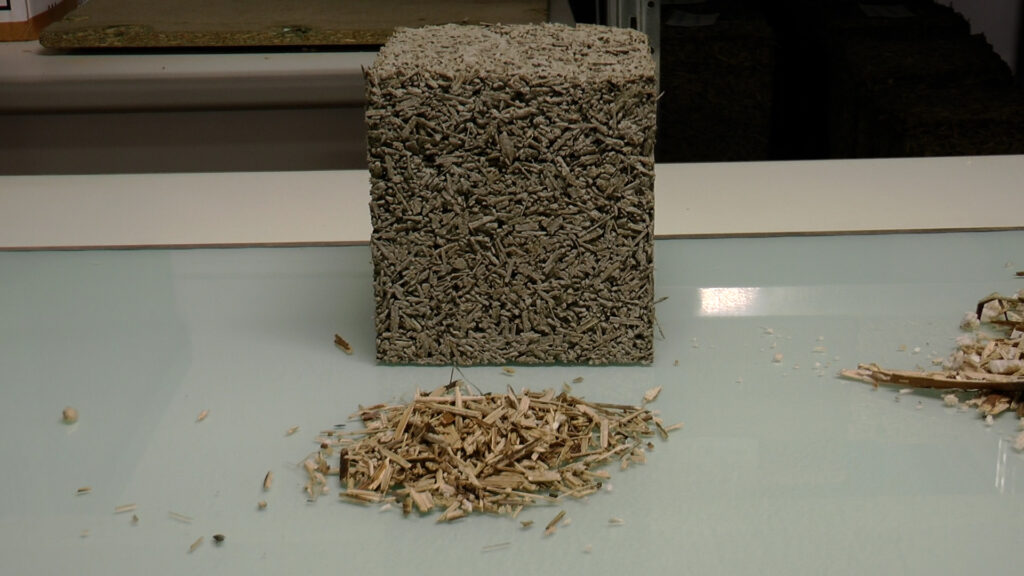
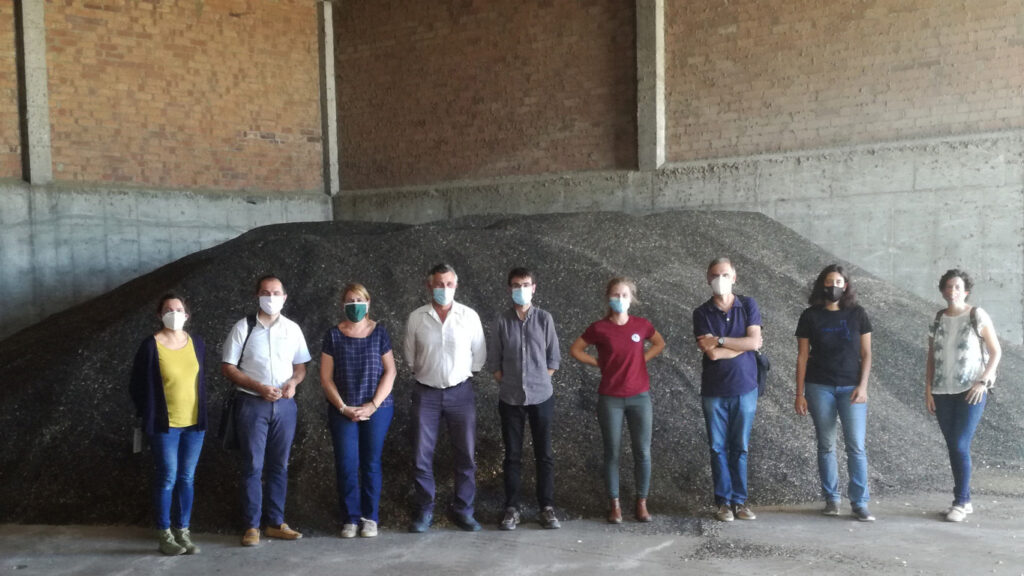
To form a network
To identify and network the actors in the plant aggregate production, development, implementation and prescription of construction products based on corn and sunflower stalks.
Main expected results
Cross-border cooperation has made it possible to form a consortium of laboratories and companies with complementary competencies in order to achieve the following results:
- Thanks to the FCAC and the support of its members, the project should allow the development of a process for collecting corn and sunflower stalks at a moderate cost.
- By relying on the industrial tools available in the Agromat-LCA room, these stems will be transformed to provide two types of plant aggregates from sunflower and corn and rind fractions.
- The multiphysical, environmental and economic characterization of the plant aggregates produced.
- The complementary skills of LMDC, GICITED, the construction companies Terre de Bois and Coeco as well as the group of architects Arqbag will allow the formulation, implementation and characterization of the use performance and durability of a complete bioclimatic construction solution based on corn and sunflower.
- Thanks to all the actors of the consortium, from the agricultural waste collected in the field, and based on the results obtained in the laboratories on a material scale, and wall later, the SAVASCO project will materialize through the construction of two instrumented prototypes valued as research, training and communication tools.
- The coordinated transdisciplinary work of the LERASS and SUSCAPE teams should make it possible to assess the environmental, economic and social performance of construction products and the developed sector. A roadmap for the sustainable development of the sector will be established in order to advise the developers who will support the projects and ensure the maintenance of the sector over time.
- The creation of an association that will bring together farmers, construction professionals, laboratories and institutions will formalize the structuring of the sector and will be a tool to defend their interests, federate and support companies and territories for their development beyond the duration of the SAVASCO project.


